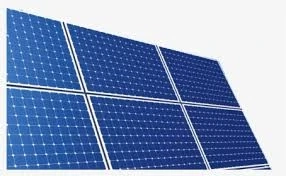The Importance of Solar Energy for Industries
Industrial sectors in Pakistan face several energy-related challenges:
- High Energy Costs: Energy bills can constitute a significant portion of operational expenses.
- Power Outages: Frequent load shedding and power outages disrupt production processes.
- Environmental Impact: Dependence on fossil fuels contributes to environmental pollution and carbon emissions.
- Energy Security: Reliance on the national grid makes industries vulnerable to supply disruptions.
Solar energy provides a viable solution to these challenges, offering numerous advantages:
- Cost Savings: Reduces reliance on expensive grid electricity and diesel generators.
- Reliability: Provides a stable and uninterrupted power supply, ensuring continuous operations.
- Environmental Benefits: Lowers carbon footprint and aligns with corporate sustainability goals.
- Energy Independence: Enhances energy security and reduces dependency on external sources.
Key Components of Industrial Solar Solutions
A comprehensive industrial solar solution typically includes the following components:
- Solar Panels: Convert sunlight into direct current (DC) electricity. High-efficiency panels are preferred for maximizing energy output.
- Inverters: Convert DC electricity generated by solar panels into alternating current (AC) used by industrial machinery and equipment.
- Battery Storage: Stores excess energy generated during the day for use during non-sunny periods or power outages.
- Mounting Systems: Support and position solar panels at an optimal angle to capture maximum sunlight.
- Charge Controllers: Regulate the voltage and current from the solar panels to the batteries, preventing overcharging and extending battery life.
Top Industrial Solar Solutions in Pakistan
Here are some leading industrial solar solutions and technologies available in Pakistan:
1. Grid-Tied Solar Systems
Overview: Grid-tied solar systems are connected to the national grid, allowing industries to draw power from the grid when solar generation is insufficient and export excess energy back to the grid.
Key Features:
- Cost Efficiency: Reduces energy bills by offsetting grid electricity consumption.
- Net Metering: Allows for energy credits through net metering, lowering overall energy costs.
- Scalability: Easily expandable to meet growing energy needs.
Best For: Industries seeking to reduce energy costs and leverage net metering benefits.
2. Off-Grid Solar Systems
Overview: Off-grid solar systems operate independently of the national grid, making them ideal for remote or rural industrial sites where grid connectivity is unreliable or unavailable.
Key Features:
- Energy Independence: Provides a self-sufficient power source, ensuring continuous operations.
- Battery Storage: Includes large battery banks for energy storage, enabling power availability during non-sunny periods.
- Remote Monitoring: Offers remote monitoring and control to manage system performance and maintenance.
Best For: Remote industrial sites with limited or no access to the national grid.
3. Hybrid Solar Systems
Overview: Hybrid solar systems combine solar power with other energy sources, such as diesel generators or the grid, providing a reliable and flexible energy solution.
Key Features:
- Versatility: Balances solar power with backup energy sources for consistent power supply.
- Efficiency: Optimizes energy use by integrating multiple power sources.
- Cost Savings: Reduces reliance on costly diesel generators by supplementing with solar energy.
Best For: Industries requiring a backup power source and flexibility in energy management.
4. Solar-Powered Industrial Processes
Overview: Solar energy can be used directly to power industrial processes, such as heating, cooling, and water treatment.
Key Features:
- Process Efficiency: Enhances efficiency and reduces operational costs by powering specific industrial processes with solar energy.
- Custom Solutions: Tailored solutions for various industrial applications, including solar thermal systems and concentrated solar power (CSP).
- Sustainability: Supports corporate sustainability goals by reducing reliance on fossil fuels.
Best For: Industries with high energy consumption in specific processes, such as manufacturing or food processing.
Benefits of Industrial Solar Solutions
- Reduction in Energy Costs: Solar systems significantly lower electricity bills by reducing reliance on the grid or diesel generators.
- Improved Reliability: Ensures a stable and continuous power supply, minimizing disruptions and downtime.
- Environmental Impact: Contributes to reduced carbon emissions and supports corporate sustainability initiatives.
- Long-Term Investment: Offers long-term savings and a return on investment through lower energy costs and reduced maintenance.
Case Studies: Successful Industrial Solar Projects in Pakistan
Several industrial solar projects in Pakistan demonstrate the effectiveness and benefits of solar solutions:
- Textile Industry in Faisalabad: A textile company implemented a large-scale solar system to power its operations, resulting in significant cost savings and reduced reliance on grid electricity.
- Food Processing Plant in Karachi: The plant adopted a hybrid solar system to complement its existing energy sources, achieving enhanced energy efficiency and lower operational costs.
- Mining Operation in Balochistan: Solar-powered systems were installed to provide energy for remote mining operations, improving energy reliability and reducing diesel consumption.
Challenges and Considerations
While industrial solar solutions offer numerous benefits, there are challenges and considerations to keep in mind:
- Initial Investment: The upfront cost of installing a solar system can be high, although it is offset by long-term savings.
- Maintenance and Support: Regular maintenance is required to ensure optimal performance and longevity of the solar system.
- Regulatory Environment: Navigating local regulations and incentives for solar energy can be complex; working with experienced solar providers can help.
Conclusion
Industrial solar solutions are transforming the energy landscape in Pakistan, offering a sustainable, cost-effective, and reliable alternative to traditional energy sources. By investing in grid-tied, off-grid, hybrid, or solar-powered industrial processes, businesses can achieve significant cost savings, enhance operational efficiency, and contribute to environmental sustainability.
As technology advances and costs continue to decrease, the adoption of solar energy in industrial applications is expected to grow, driving economic and environmental benefits across the sector. Embracing industrial solar solutions is not only a smart business decision but also a step towards a more resilient and sustainable energy future for Pakistan.



